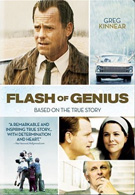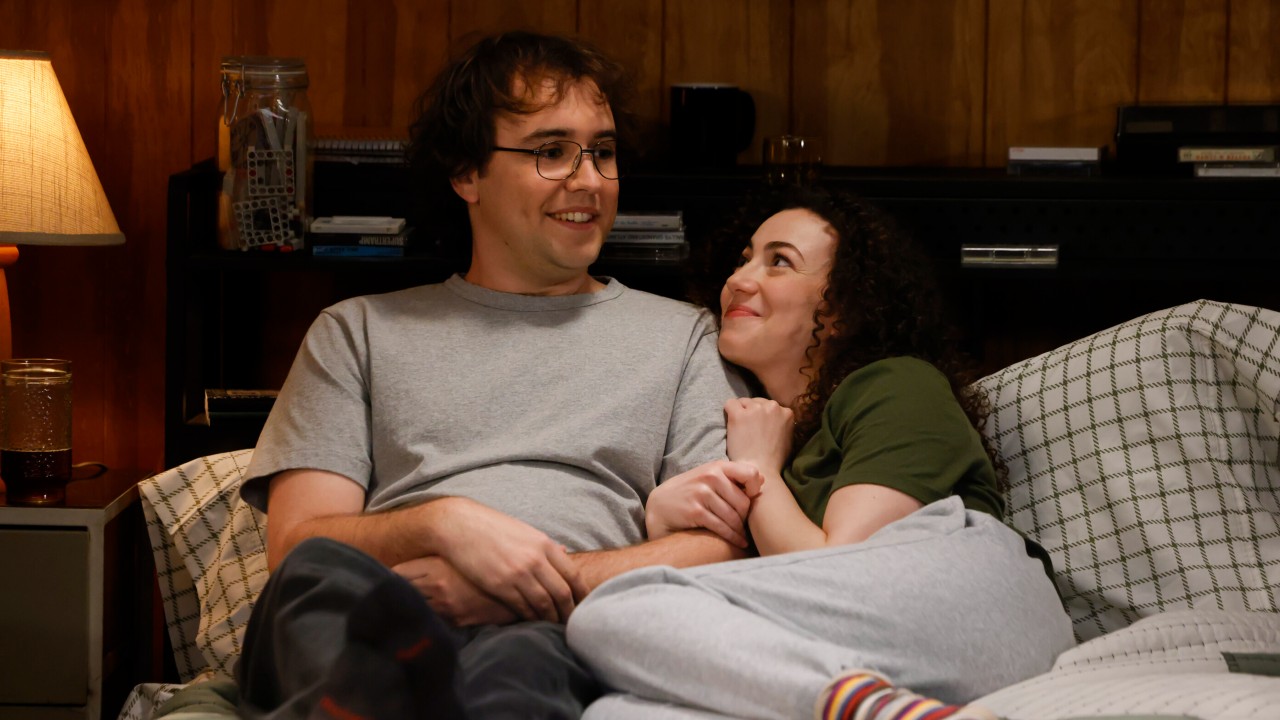It is not that Flash of Geniusis offensively bad, it is just offensively boring. There is no joy of the cinematic in the film, just the mundane telling of a true story. The film hits each plot point with no personal flair and, it would seem, almost no fiction to spice up the non-fiction. Flash of Genius has a few moments that are rather quaint, but nothing to make the film actually worth watching. If you have experienced a reasonable amount of cinema, then you have seen the main elements of this film: the man driven to madness by something he can not control, the underdog court case in which the man represents himself, and the marriage broken by these things. And, trust me, you’ve seen them done better. You may not have seen the man who invented the intermittent wiper, but could there be a more uninteresting detail to hinge a movie on? Flash of Genius is the film based on the article in the New Yorker of the same name, which is based on the life of Bob Kearns. The film begins with Bob being apprehended by the police; they tell him “Your family is worried about you,” and then take him with them. He babbles nonsensically and the audience can assume that he is being taken to the mental hospital. We then flash back three years to when Bob invented the “Kearns Blinking Eye Motor,” which was to be used to create the intermittent wiper. After trying to sell his invention to Ford, they copy his model and lie about it. Approx. 12 years pass and Bob ends up having to represent himself in a court case against Ford after his lawyer quits, his wife leaves him, and his children lose hope in him.
I have never seen Greg Kinnear be more robbed of his life-force than in Flash of Genius. I can only imagine the direction Marc Abraham gave him “No, more understated, more downtrodden.” I’m not sure if the makeup department gave him the bags under his eyes and the pot-belly he sports in the film, or if the movie just wore on him. The problem with Bob, the man that Kinnear plays, is that he is not really that likeable of a guy. At one point in the film, his lawyer comments, “You don’t have the most charming personality,” and I completely agree. After inventing the least sexy machine of all time Bob sulks his way through 12 years of his life, losing everything along the way. Yes, his court case win at the end of the film is exciting, but only because I wanted there to be some payoff for me watching this film, not because I cared deeply for the character. Kinnear is unrecognizable in the part, indicating that he was doing some intense acting, but was this part is not worth immersing himself in.
The structure of the film is disappointingly formulaic. Although I haven’t seen any movies about patent infringement (yawn) cases, I have seen the inside of a court room many times on film. From the experience of watching movies, such as Philadelphia, Erin Brockovitch, and To Kill a Mockingbird, I already knew that Flash of Genius was going to end with a big financial payoff. The story would not be movie-making material if the there was not an impressive win in court. The movie becomes painfully predictable and, only the very best of films can pull off being enjoyable once the audience already knows what will happen. Flash of Genius is not one of those films.
The fact that a man sued Ford after they stole his model for the intermittent wiper and won over $10 million is a fact worth knowing. A movie about that small piece of information, however, is not worth watching. There is just not enough material with which to build an entire movie around. It is a sad story, but it doesn’t have to be the lifeless sty that Abrams turns it into. The storytelling is predictable and the acting limp. And, all of these mundane details take place with the backdrop of Detroit. The scenery is ugly, and even the costumes could be spicier. Each element of the film adds to the fact that it is so boring, it is almost unwatchable. The disc is fairly sparse, which is to be expected for such a small indie film. There are six deleted scenes, all of which you can listen to with commentary from Abraham, and commentary over the feature by Abraham. Each deleted scene is about a minute or less long; they are mainly just shots that would have oriented the audience to a scene or timeframe within the film. There is one small scene that takes place inside the mental hospital that is quite good, but other than that, the scenes are as dull as the film. There is one that is particularly dull, in which the family converses while they wait for the jury to deliberate. While I was watching the film I thought “I bet this is one of those movies that will show the family waiting for the Jury’s decision, rather than just cutting right to it.” Well, it wasn’t, but Universal made sure they included the less-than-thrilling wait in the deleted scenes.
Director Marc Abraham’s commentary on the deleted scenes is completely pointless. He says basically the same thing over and over, which is that the scene was ultimately unnecessary. His commentary on the film is equally directionless and boring. Abrahams uses the word “subtle” at least once every scene in his commentary. He was obviously extremely focused on making this as subtle of a film as possible. The other thing that Abrahams talks about a lot is accuracy. The director seems to be so obsessed with creating the most truthful portrait of this real-life man, that he leaves the drama of cinema behind. He even mentions that the family claimed that some of the sets were eerily similar to what the real-life version looked like at the time. Two things I learned from the commentary were that 1. very little music was used in the final product of the film 2. Abrahams wanted to keep the colors “subtle,” so as to keep the mood of the film “subtle.” The result was a music-less, color-less movie. These two details, though I might never have picked them out myself, really add to the mundane nature of the film.
Every aspect of this film is geared towards recreating real life. But, do we go to the movies to see real life? No, we go to be entertained by what seems to be larger than life. In a sense, this movie is more biopic than most actual biopics that you see today. But, that does not make Flash of Genius a better film, just more accurate.
Why One The Summer I Turned Pretty Fan Thinks A Parallel Between The Latest Poster And An Audrey Hepburn Movie Spoils The End
I Talked To The Wedding Banquet Director About My Favorite Scene, And Turns Out Youn Yuh-Jung Actually Had A Key Note That Made It Better
Georgie & Mandy's First Marriage Just Revealed A Messy Twist In Connor's Relationship, And I Can See This Getting Complicated











